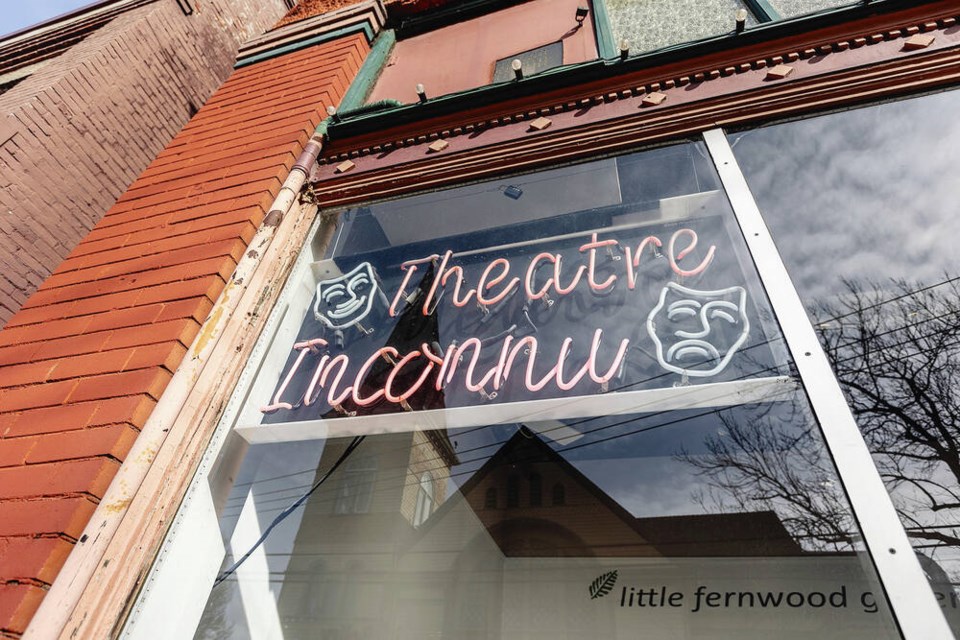A second play in Victoria has been cancelled after complaints that it puts too much focus on the voices of oppressors.
Sisters, written by playwright Wendy Lill and staged by Theatre Inconnu, explores residential-school abuse and was supposed to run until March 9.
But it was abruptly cancelled Wednesday by the Fernwood Community Association, which operates the building that houses the theatre, with five scheduled performances left.
The story centres around a young nun who is transformed from caring to abusive through the influence of the system and her fellow worker, according to the theatre’s website.
Board members of the association did not respond to a call for comment on Thursday.
Theatre Inconnu’s Instagram posts about the production have been flooded with comments criticizing the play, claiming it portrays the nun as a victim of the residential-school system instead of focusing on the experiences of Indigenous children who were forced to attend the schools.
“To centre these voices when the violence of colonialism and residential schools is ongoing? This is shameful and embarrassing,” one person commented.
Some commentators drew a parallel between Sisters and The Runner, a play about an Israeli rescue volunteer’s decision to save a Palestinian woman accused of killing an Israeli soldier.
The Belfry Theatre, which is directly across the street from Theatre Inconnu on Fernwood Road, dropped The Runner from its spring lineup in January after duelling petitions for and against cancelling it.
The petition against the play criticized it for focusing on an Israeli experience while Israel was killing Palestinians in the Gaza Strip. The theatre was spray-painted with graffiti saying “Free Palestine.”
Kevin McKendrick, who was directing Sisters for Theatre Inconnu, said it’s clear that those criticizing the play have not seen it.
There are no Indigenous voices in the play because the playwright, a white woman, specifically wanted white people to be aware of what white society had done to the Indigenous community, he said, adding it was never meant to be about the Indigenous experience of the residential-school system.
Instead, it was intended to show the evil that ordinary people are capable of, McKendrick said.
The characters are not sympathetic, but human, he said. “That’s why the play is so moving, because you realize anybody could be a monster.”
If the play depicted the central character, Sister Mary, as someone with evil intentions from the beginning, audiences could absolve themselves of responsibility, McKendrick said. But seeing the naive 17-year-old who first comes to the school transformed into an oppressive nun who punishes Indigenous children helps to further understanding of how the school system operated.
“The problem we’re having today is that people are having difficulty having two thoughts in their head at the same time — one being that this person that perpetrates these crimes could have been a good person, and we may even see them as a good person at one point in their life. But then what they become over time through the course of the play is the antithesis of that.
“It’s not only bad people that do bad things.”
Jennifer Bayne, the actor who plays Sister Mary, said the play shows the damage white settlers inflicted through the residential-school system. “This is not about letting us off the hook,” said Bayne, who noted that cast members found out that the Wednesday-evening performance had been cancelled around 2 p.m. the same day.
Jeremy Sinclair, another cast member, said his empathy for survivors of residential schools has only grown through his work on the play. “It makes me really see the evils that were done,” he said.
The cast spent months reading about and discussing the devastating impacts of residential schools, which broadened his worldview and inspired him to take a more active role in reconciliation, he said.
“Perhaps audiences could have had a similar learning experience. Alas, another opportunity for growth is lost when we censor art out of fear,” Sinclair said.
Playwright Lill said in a statement that she was trying to examine “the culture, infrastructure and values of the society” that created the residential-school system and to expose the “daily internal workings of the cultural genocide brought about by residential schools.”
Based on the theatre’s description of the play, she felt the producers understood her intention when she wrote Sisters 35 years ago. “To pose the question: How did a nun who started out thinking she was doing good work end up a monster destroying lives?”
Lill, a former NDP member of parliament, has received four nominations for Governor General’s Awards for her plays.
Sisters received the Labatt’s Canadian Play Award at the Newfoundland and Labrador Drama Festival, and her TV adaptation of the play won a Gemini Award in 1992.
>>> To comment on this article, write a letter to the editor: [email protected]



